China’s financing and investment spread across 61 BRI countries in 2023 (up...
2024-02-27 31 英文报告下载
For almost 200 years, starting with the framing of the Monroe Doctrine in 1823, the United States has asserted security claims over virtually the whole Western hemisphere. Any foreign power that places military forces near U.S. territory knows it is crossing a red line. U.S. policy thus embodies a conviction that where a potential opponent places its forces is crucially important. In fact, this conviction is the cornerstone of American foreign and military policy, and its violation is considered reason for war. Yet when it comes to Russia, the United States and its NATO allies have acted for decades in disregard of this same principle. They have progressively advanced the placement of their military forces toward Russia, even to its borders. They have done this with inadequate attention to, and sometimes blithe disregard for, how Russian leaders might perceive this advance.
Had Russia taken equivalent actions with respect to U.S. territory—say, placing its military forces in Canada or Mexico— Washington would have gone to war and justified that war as a defensive response to the military encroachment of a foreign power. When viewed through this lens, Russia's invasion of Ukraine is seen not as the unbridled expansionism of a malevolent Russian leader but as a violent and destructive reaction to misguided Western policies: an attempt to reestablish a zone around Russia's western border that is free of offensive threats from the United States and its allies. Having misunderstood why Russia invaded Ukraine, the West is now basing existential decisions on false premises. In doing so, it is deepening the crisis and may be sleepwalking toward nuclear war. This argument, which I now present in detail, is based on the analyses of a number of scholars, government officials, and military observers, all of whom I introduce and quote from in the course of the presentation. These include John Mearsheimer, Stephen F. Cohen, Richard Sakwa, Gilbert Doctorow, George F. Kennan, Chas Freeman, Douglas Macgregor, and Brennan Deveraux.

标签: 英文报告下载
相关文章
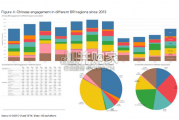
China’s financing and investment spread across 61 BRI countries in 2023 (up...
2024-02-27 31 英文报告下载
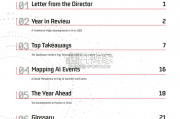
Though the risk of AI leading to catastrophe or human extinction had...
2024-02-26 50 英文报告下载
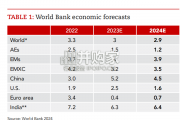
Focusing on the prospects for 2024, global growth is likely to come i...
2024-02-21 95 英文报告下载
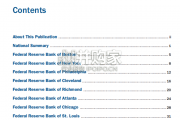
Economic activity declined slightly on average, employment was roughly flat...
2024-02-07 66 英文报告下载
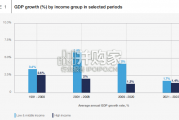
Economic growth can be defned as an increase in the quantity or quali...
2024-02-06 82 英文报告下载
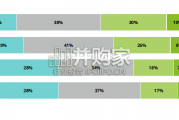
In this initial quarterly survey, 41% of leaders reported their organizatio...
2024-02-05 66 英文报告下载
最新留言